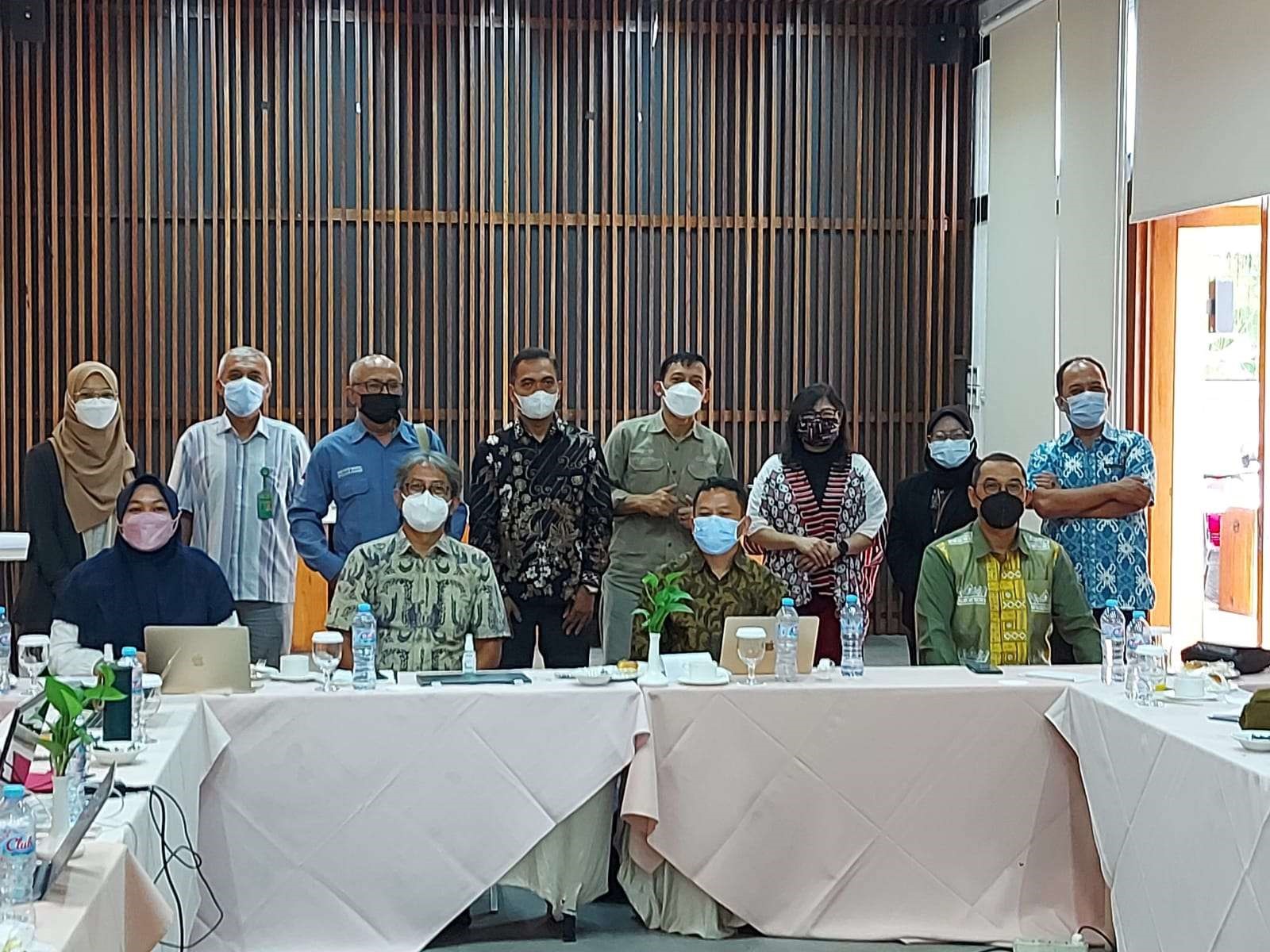
Since 2014, The Human Resources Extension and Development Agency (BP2SDM) at the Ministry of Environment and Forestry (MoEF) has been developing the Young Forester Programme (YFP) as a part of efforts designed to meet the needs for human resources at forest management units (KPH). As of 2019, 2,594 YFP personnel had been assigned to KPH. However, based on the most recent data, only 1,068 Young Foresters are now actively working in the field. Although staff numbers are currently relatively small, the results of the monitoring and evaluation conducted by the BP2SDM have revealed that the Young Foresters Programme has made a significant contribution to the operational readiness of FMUs in the field.
Since the Young Forester Programme will end in 2021, the BP2SDM recently conducted an evaluation of the programme and the results were presented at an online and offline workshop that was held on 14 October 2021 in Jakarta. The workshop, supported by FORCLIME, was opened by Dr. Ir. Iwan Setiawan, M.Sc., the Head of Planning, Development and Evaluation of Non-Apparatus HR at the Ministry of Environment and Forestry.
The results of the study and evaluation identified a number of challenges and obstacles relating to the implementation of the Young Forester programme, as follows:
1. Limited human resources at both the central and regional levels.
2. An uncertain future has been a demotivating factor for young foresters working in the field.
3. The authority of the FMU as a forest management institution at the site level is becoming increasingly limited.
The study results also revealed that only seven out of 25 provinces have the resources to continue financing the Young Forester Programme. These seven provinces are: East Kalimantan, Central Kalimantan, South Kalimantan, North Kalimantan, DI Yogyakarta, North Sumatra and North Sulawesi. The results of the study also identify West Nusa Tenggara and West Papua, however, the consultation process within these two regions has not yet been completed. As a result, only 20% - 30% of Indonesia’s provinces are ready to continue with the Young Forester Programme.
One of the outputs from the evaluation of the Young Forester Programme is the following exit strategy scenario:
1. Short-term scenario (affirmative), assigning 32% of the Young Foresters to the local government as honorary KPH staff members, with the remaining 68% to be reallocated to MoEF working units as temporary workers.
2. Medium-term scenario (competitive), preparation of young foresters to become permanent KPH employees (civil servants) through the Recruitment of Government Employees with Work Agreements (P3K) mechanism.
3. Long-term scenario (facilitative), formulating regional action plans that address the meeting of the standard ratio target for forestry human resources at KPHs (minimum of 25 persons per KPH).
Based on the study results, in order to support each of the above scenarios, the BP2SDM will need to coordinate and consolidate intensively with relevant central ministries/institutions, including the Ministry of Home Affairs, the Ministry of Finance, Bappenas and the State Civil Service Agency. In addition, coordination also needs to be carried out with local governments, as well as with the forestry service and the Regional Personnel and Training Agency (BKD), in order to formulate a policy strategy capable of developing and meeting the need for FMU human resources in the future. Regional governments, acting through the forestry service or provincial environment and forestry services, along with the BKD, should actively propose formations to the Ministry of State Apparatus Empowerment and Bureaucratic Reform so that they will be able to meet the demand for human resources by FMUs, either through the formation of ASN or through recruitment of government employees under work agreements.
For more information, please contact:
Wira Hakim, Junior advisor for Human Capacity Development
Edy Marbyanto, Strategic Area Manager for Human Capacity Development






